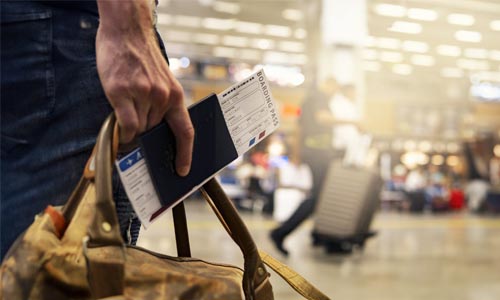3000 Dirham Rule: What UAE Travellers Need to Know!
Planning to visit the UAE?
There’s a rule you need to be aware of — the 3000 Dirham Rule! This rule works as a financial requirement, ensuring that visitors have sufficient funds to support themselves throughout their stay. Mainly applying to tourist visas, this rule aims to enhance travel safety and financial security while also smoothening the immigration processes.
But how does this rule impact your UAE travel? Let’s get the answer and understand all aspects of the 3,000 Dirham rule.
What is the 3,000 Dirham Rule?
With the commencement of the 3000 Dirham Rule, the UAE government has set a financial obligation on visitors entering the country. As per this rule, travellers entering the UAE on a one-month tourist visa must have at least AED 3,000 in accessible funds. For longer stays (2 months or more), the requirement increases to AED 5,000
Why does this matter?
The most obvious benefit is for travellers, who can come prepared for scenarios where they may face difficulties or unforeseen expenses. It is also considered optimal for the management of immigration as the government can now streamline the processes and make them more systematic.
All in all, the introduction of this rule ensures transparency in the tourism sector with a smooth and secure experience for travellers while visiting the country.
Types of Acceptable Funds Under the 3,000 Dirham Rule
It’s worth noting that you don’t necessarily have to carry AED 3,000 cash. Rather, you must be able to prove the availability of such an amount through the following modes —
- Cash AED 3,000 or more
- Bank statements (showing available funds)
- Credit cards (with a sufficient limit)
- Prepaid travel cards (loaded with enough balance)
Important: While AED 3,000 cash can be sufficient for minor mishaps, this amount can certainly fall short in case of emergencies related to your health, accidents, and so on.
To be covered against baggage loss, medical emergencies, flight cancellations, trip curtailment, and more, get travel insurance today.

Who Does the 3,000 Dirham Rule Apply to?
The rule applies to specific visa categories tabled below —
|
Visa Type |
Stay of Duration |
Minimum Funds |
|---|---|---|
|
1 Month Tourist Visa |
30 days |
AED 3,000 |
|
2 Month Tourist Visa |
60 days |
AED 5,000 |
|
Long Stay Visa |
> 60 days |
AED 5,000 |
|
Transit Visa |
Up to 96 hours |
N/A |
|
Students/Work Visa |
As per the visa |
N/A |
3000 Dirham Rule: Compliance Tips for Travelers
To avoid issues at immigration, you should —
✨Keep digital or printed bank statements as proof
✨Use international credit cards or travel-friendly prepaid cards
✨Ensure your credit card limit meets the requirement
✨Check your bank balance before travelling
Final Thoughts
The 3,000 Dirham Rule is an important rule for tourists visiting the UAE, ensuring that travellers are financially prepared and able to enjoy their trip without any money-related worries. While it requires some planning, it ultimately helps create a safer and more enjoyable travel experience.
Before packing your bags, make sure you meet the 3,000 Dirham Rule requirement to avoid any delays at immigration. Also, shield yourself with a travel insurance plan that covers various circumstances and is quite affordable.
More From Travel Insurance
- Recent Articles
- Popular Articles













